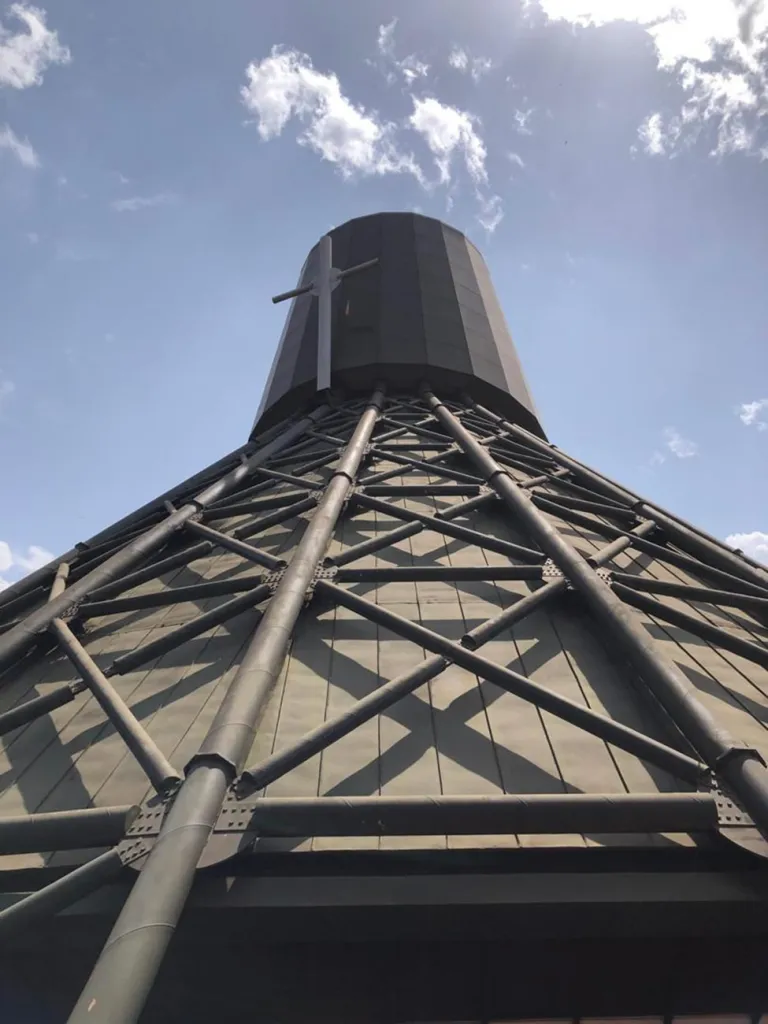By Mercy Muhaye
On June 3, Uganda commemorated 60 years since the canonization of its martyrs, honoring 45 young Christian converts executed for refusing to denounce their faith. The deaths of 22 Catholics and 23 Anglicans were ordered between 1885 and 1887 by King Mwanga II of the Buganda Kingdom.
What was meant to be a campaign to suppress Christianity only strengthened it, leading to a legacy that endures and inspires millions around the globe.
The 2024 celebration was led by the Nebbi Diocese at the Catholic shrines of Namugongo, while for the Church of Uganda, the ceremony was organized by the Mid-Western Dioceses. The Catholics celebrated the day under the theme “As for me and my household, we shall serve the Lord” while for Anglicans chose “Conforming to the Truth of God’s Word and not the patterns of the World” as their theme.

“God, through the celebration of today, is inviting us to the bigness of thinking, where we see the need to live according to the designs of God and to be like Joshua who declared that he and his household would serve the Lord,” Archbishop-elect Raphael p’Mony Wokorach said. Wokorach is in a leadership transition from Nebbi Diocese to Gulu Archdiocese, where Pope Francis appointed him archbishop a month ago. He remains the apostolic administrator of Nebbi Diocese until it gets a new pastoral head.
Wokorach encouraged pilgrims to imitate the legacy of the Ugandan Martyrs who lived and exhibited a strong faith regardless of danger to their own lives. The martyrs took the Word of God seriously, and it shaped and marked their lives.
The event, a national holiday, drew a turnout of about 4 million people. By dawn, the shrines were filled to capacity with pilgrims from all walks of life, forming long queues at every entrance. Except during the Covid-19 shutdown, this place in the Wakiso District, central Uganda, attracts more people each year.
Uganda Christian University (UCU) had a notable presence in Namugongo, with many staff, faculty, students, and alumni participating.

The UCU Fitness Club joined pilgrims on Sunday, June 2, 2024, to commemorate Uganda Martyrs Day, covering 20 kilometers (about 12.5miles) from UCU in Mukono to Namugongo. This walk, involving five participants from both Anglican and Catholic denominations, highlighted the unity of the Christian faith rooted in Namugongo. The pilgrimage was both a test of physical endurance and a spiritual journey, deepening participants’ appreciation of their faith and the courage of the Namugongo martyrs.
“I have always admired walking this journey to Namugongo and I’m glad today I took part in it” Beatrice Ayenyo, one of the pilgrims, said.
The history of the Ugandan martyrs is both tragic and triumphant. The first martyr, Joseph Mukasa Balikuddembe, was executed on November 15, 1885, for pleading with the king to spare Bishop James Hannington, an Anglican missionary.
The main wave of persecution began on May 25, 1886, when King Mwanga condemned Christians to death. Charles Lwanga and his companions were brutally executed on June 3, 1886, at Namugongo. Their deaths were intended to deter others from embracing Christianity. Instead, their martyrdom galvanized the faith.
President Yoweri Kaguta Museveni, attending the event for the first time in four years, addressed the gathered pilgrims: “I congratulate you all for reaching this date despite the challenges posed by Covid-19 and the Ebola outbreak. I encourage all Christians to multiply their talents and ensure they are not living in poverty.”
This year marks the 60th anniversary of the martyrs’ canonization by Pope Paul VI in 1964. During his visit to Uganda, Pope Paul VI canonized the 22 Catholic martyrs, making them the first saints from sub-Saharan Africa.
The Namugongo event is reputed to be the largest one-day gathering in Uganda.
In a world where religious persecution still exists, the story of the Ugandan martyrs serves as a powerful reminder of the strength found in faith and the enduring power of conviction. King Mwanga’s attempt to extinguish Christianity instead ignited a flame that continues to burn brightly. The pilgrims’ journeys, mirroring the martyrs’ march to their execution, epitomize a collective commitment to uphold and celebrate a faith that no force could ever truly destroy.
Catholic Archbishop of Kampala Paul Ssemogerere said that the Uganda Martyrs Day reminds humanity of the importance of faith, resilience, unity, and witnessing to Christ.
“The martyrs’ story is a powerful reminder of the cost of standing up for one’s faith and the enduring power of such a stand,” Ssemogerere said.
Beyond Uganda, Martyrs’ Day is observed in various countries worldwide, including the United States, Japan, India, Brazil, Canada, and Australia. These commemorations honor individuals such as soldiers, revolutionaries, or victims of genocide, recognizing the sacrifices made by martyrs in their respective nations and reflecting a global tradition of honoring those who have given their lives for their beliefs, freedom and/or country.
From persecution to proclamation, the legacy of martyrs is a compelling narrative of resilience and unwavering faith. As the world continues to honor their sacrifices, their stories remain a beacon of hope and inspiration for generations to come.


